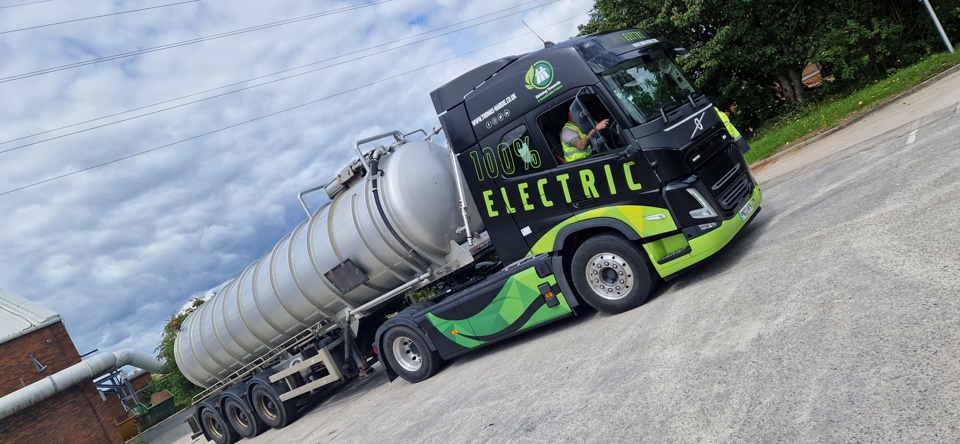A new industry-led project that aims to deliver one of the biggest and most advanced electric heavy goods vehicle (HGV) charging network’s in the world has been announced.
Gridserve’s ‘Electric Freightway’ project which will see around 140 electric HGVs integrated into a charging network across 15 motorway charging sites and more than 10 commercial depot charging locations.
It is one of four trials involving the rollout of up to 370 zero-emission HGVs that have been awarded a share of £200 million in Government funding.
The aim of the Electric Freightway project, which will run until 2025, is to test and show that electric HGVs are ready to replace diesel HGVs and can continue to deliver the same service when the right infrastructure, systems, processes, and business models are deployed.
It aims to quantify the total cost of ownership for the electric trucks relative to their diesel counterparts without Government policies, grants, and subsidies.
Hitachi ZeroCarbon’s project role will provide high-quality data and deliver validated insights from battery electric HGV's operating in the real-world over a five-year period.
This will involve analysing routes, vehicle and charging session data including the optimisation of battery health, range and charging infrastructure monitoring, and evidence-based total cost of ownership modelling to support investment business cases for future electric HGV deployments.
Hitachi ZeroCarbon says it will bring its extensive knowledge from the Optimise Prime project, which included partners Royal Mail and Uber, and looked at solutions to enable networks and fleet operators prepare for the transition to commercial electric vehicles.
The data architecture for the project will be based on Lumada, Hitachi's digital solutions, services and technologies platform, which will be leveraged to gather data and provide learning, insights and data sets which will inform future electric HGV UK strategy.
Ram Ramachander, chief executive of Hitachi ZeroCarbon, said: “Hitachi is committed to being a climate change innovator, and this means bringing our next-generation technologies and strong sector expertise to the Electric Freightway project.
“Freight transport is a large contributor to global CO2 emissions, so decarbonising the sector is vital to meet net zero targets. We are looking forward to working alongside Gridserve and the wider consortium to showcase the technologies that exist today which will help deliver a zero-carbon future”.
The consortium of 33 partner and member companies is part of the Zero Emission HGV and Infrastructure Demonstrator Programme which is funded by the Department for Transport (DfT) and delivered in partnership with Innovate UK.
United Utilities is taking part in the Electric Freightway project with electric vehicles based at the company’s Bioresources Centre in Manchester used to transport sewage sludge, a by-product of sewage treatment, from wastewater treatment facilities across the north-west for processing.
The vehicles will charge up at Davyhulme using the renewable electricity produced on site from the processed sewage sludge.
The biogas generated in the anaerobic digestion process goes to a combined heat and power unit where it is converted into 100% renewable energy which will be used to power the HGV charging points.
Tom Lissett, Bioresources and Green Energy director at United Utilities, said: “This is a really exciting development and an important step towards our 100% green fleet and net zero carbon targets.
“Using the vehicles to collect the sludge and then using the clean energy it generates to charge their batteries is a great way of maximising the potential of that resource. We’ve recently trialled one electric HGV so we know it is a good solution for us.”
The specialist charging points will be installed by Gridserve as part of the demonstrator and it is expected the vehicles will be introduced in Spring 2024.
United Utilities will share learnings and data with other companies to help support the UK’s transition to electric vehicles.





















Login to comment
Comments
No comments have been made yet.